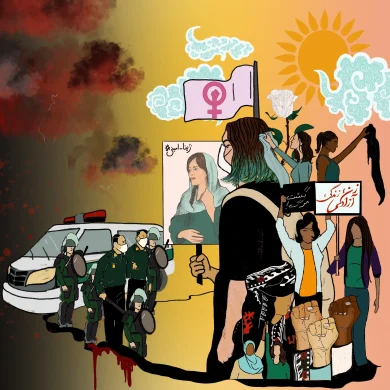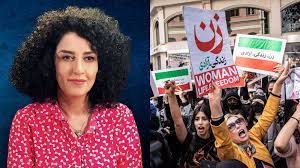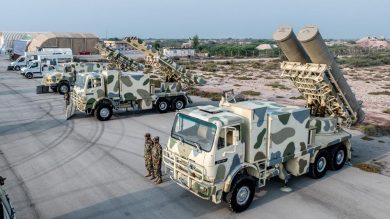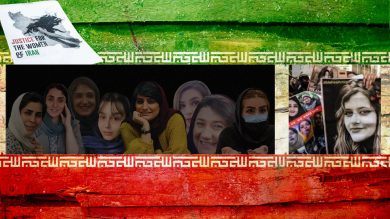For more than four decades, the Islamic Revolutionary Guard Corps (IRGC) has carried out a relentless campaign of violence, repression, and regional destabilization. It has crushed protests with lethal force, imprisoned and tortured dissidents, supported terrorist groups abroad, and expanded its power through a vast economic and ideological empire.
But the IRGC doesn’t act alone. Its survival is made possible not just by the authoritarian regime in Tehran, but by the silence and inaction of global democracies. From ignored sanctions to failed designations, from muted diplomatic responses to open channels of commerce, the world’s democratic nations have allowed one of the most brutal state-sponsored entities to operate with near-total impunity.
This article examines the true cost of that silence—not just for the people of Iran, but for global human rights, regional security, and the very credibility of democratic values on the world stage.
1. The IRGC: A Global Threat with Local Consequences
The IRGC was created to protect Iran’s Islamic Revolution but has since evolved into a transnational military, economic, and intelligence force. Today, it is responsible for:
• Violent repression of domestic protests
• Torture and execution of political prisoners
• Arming and funding groups like Hezbollah, Hamas, and the Houthis
• Orchestrating terror plots in Europe and the U.S.
• Silencing dissidents abroad through threats, surveillance, and attempted assassinations
Despite this long record, the IRGC continues to enjoy relative freedom to operate globally, largely because of hesitancy and inertia among Western powers.
2. Diplomacy Over Justice: The Consequences of Prioritizing Nuclear Talks
One of the most significant reasons democracies have not acted decisively against the IRGC is their desire to preserve diplomatic channels for nuclear negotiations with Iran.
The JCPOA Trap:
• The 2015 Joint Comprehensive Plan of Action (JCPOA) was designed to limit Iran’s nuclear program in exchange for sanctions relief.
• Many Western nations have feared that cracking down on the IRGC—including designating it as a terrorist organization—would derail diplomacy.
The Cost:
• Human rights violations are ignored for geopolitical strategy.
• The IRGC exploits these negotiations to delay action and gain legitimacy.
• While diplomats meet in Vienna, protesters are beaten in Tehran.
Justice has been treated as a secondary issue—when it should be central.
3. The Failure to Designate the IRGC as a Terrorist Organization
As of now, the United States is the only country that has fully designated the IRGC as a Foreign Terrorist Organization (FTO).
Europe and Canada:
• The EU and UK have only designated the IRGC’s Quds Force, not the full organization.
• Canada has sanctioned some IRGC officials but continues to allow IRGC-affiliated individuals to reside and operate within its borders.
• Despite public support, these governments cite “legal constraints” or “diplomatic considerations” for not moving forward.
The Price of Delay:
• IRGC-linked agents continue to plan attacks abroad.
• Sanctions are easily evaded by rebranding front companies.
• Survivors of IRGC violence are denied legal avenues for justice.
Inaction signals tolerance—and tolerance signals permission.
4. Economic Ties and Corporate Complicity
Many democratic nations have also failed to act due to economic entanglements.
IRGC’s Economic Reach:
• Controls vast segments of Iran’s economy through companies like Khatam al-Anbiya, Mobin Trust, and numerous shell firms.
• Engages in international trade, often through front companies and third-party intermediaries in Europe, Asia, and the Middle East.
Western Enablement:
• Corporations continue to trade with IRGC-linked firms under false pretenses.
• Banks process transactions tied to front entities.
• Technology companies have supplied surveillance tools later used to target protesters and journalists.
Real-World Impact:
• Surveillance software used to track and arrest activists.
• IRGC’s foreign operations funded by illicit profits laundered through global markets.
• Democratic governments turning a blind eye due to trade interests.
Profit, it seems, still outweighs principle.
5. The Toll on Iranian Civilians
The silence of democracies doesn’t just protect the IRGC—it hurts ordinary Iranians.
Direct Consequences:
• Thousands imprisoned or executed for protest or dissent.
• Families of political prisoners harassed or silenced.
• Chemical attacks on girls’ schools go uninvestigated.
• Women jailed and assaulted for removing their hijabs.
• Internet blackouts and digital repression using foreign-sourced technologies.
By refusing to confront the IRGC, democracies leave these people without allies, recourse, or hope.
6. The Threat Beyond Iran: Global Security Under Fire
The IRGC is not a localized force. It has repeatedly attacked or threatened targets abroad.
Confirmed Plots and Attacks:
• 2018: Foiled bomb plot against a rally in Paris.
• 2022: U.S. authorities stopped an assassination attempt against journalist Masih Alinejad.
• Ongoing: Surveillance and intimidation of Iranian exiles across Europe, Canada, and the U.S.
Regional Destabilization:
• Missiles launched at Israeli territory via Hezbollah.
• Drones and missiles supplied to Houthis used in attacks on Saudi Arabia and UAE.
• Weapons provided to militias in Iraq and Syria that target civilians and coalition troops.
Global Risk:
• The IRGC is state-sponsored terrorism with diplomatic cover.
• Without consequences, it will continue to escalate its attacks—confident that the world will blink first.
7. Undermining International Law and Human Rights
Democracies often champion human rights. But when it comes to Iran, that commitment becomes conditional.
What Inaction Undermines:
• The UN Charter on human rights and protection from torture.
• International criminal accountability mechanisms (including universal jurisdiction).
• The credibility of sanctions regimes against authoritarian actors.
Worse, when democracies ignore the IRGC’s crimes, they legitimize oppression as a diplomatic bargaining chip—and embolden other authoritarian regimes to follow suit.
8. Survivor Voices Ignored
From political prisoners to families of the executed, thousands have fled Iran seeking justice. But in the absence of international response, they are left with:
• No pathways to prosecute their torturers.
• No asset recovery for stolen or frozen family wealth.
• No assurance that the officials who ruined their lives will ever face consequences.
Their trauma is compounded by watching their abusers move freely through global financial and diplomatic systems.
Their justice is the world’s responsibility.
9. What Democracies Must Do—Now
Silence is no longer an option. A growing movement of activists, survivors, and human rights advocates are calling on democratic nations to act decisively.
The Minimum Standard of Action:
• Fully designate the IRGC as a terrorist organization (EU, UK, Canada).
• Sanction all IRGC-affiliated entities and their global enablers.
• Prosecute IRGC operatives under universal jurisdiction for crimes including torture, abduction, and murder.
• Expel known IRGC agents and freeze their assets.
• Support civil society, digital freedom, and survivor testimony initiatives inside and outside Iran.
Why It Matters:
• It shows solidarity with the Iranian people.
• It deters future abuses.
• It reaffirms the moral credibility of democratic governments.
• It limits the IRGC’s access to money, markets, and mobility.
Conclusion: The Silence Ends With Us
Every day that passes without action strengthens the IRGC. Every unpunished crime becomes a blueprint for more.And every quiet diplomacy session sends a louder message to the oppressed: you are alone.
Join Our Newsletter!
Stay informed with the latest updates, news, and ways to take action in the fight for justice and global security. Sign up now to get updates delivered straight to your inbox!





